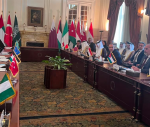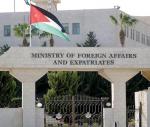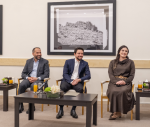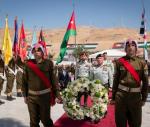You are here
From Cuban missiles to Putin's crisis
Oct 31,2022 - Last updated at Oct 31,2022
NEW YORK — Sixty years after the Cuban Missile Crisis, the world is again facing the specter of a nuclear confrontation. With Russian President Vladimir Putin appearing to be losing his war in Ukraine, he continues to escalate his threats, claiming that he may have to use nuclear weapons to protect Russia, including its newly “annexed” Ukrainian territories. As Putin brings the world to the brink, the question now is whether he will step back from it, as the Soviet leader, Nikita Khrushchev, did in 1962.
That summer, in response to the United States’ decision to place nuclear weapons in NATO countries, including Turkey, and aim them at Soviet cities, Khrushchev had sought to level the playing field by ordering the surreptitious placement of mid-range nuclear missiles in Cuba. The weapons would also protect the Cuban regime from a US invasion.
When US president John F. Kennedy found out what Khrushchev had done, on October 16, he was furious. Not only had the Soviets installed nuclear weapons just off America’s shores; they had kept them there for months without the US knowing.
For two weeks, Kennedy and Khrushchev exchanged letters and public declarations. From Khrushchev’s perspective, Kennedy’s response reflected his inexperience, and the Soviet leader attempted to avoid provocation, not least by refraining from highlighting the US missiles in Turkey. While doing so might have served his interests by leveling the moral playing field as well, it could have also triggered a US attack on Cuba. Instead, Khrushchev explained that this was merely a quest for parity, and he had no intention of deploying the missiles.
But Kennedy would not back down, so Khrushchev, having no desire to risk nuclear war, adjusted his strategy. An agreement was struck: the Soviets would withdraw their weapons from Cuba, and the US would remove its Jupiter ballistic missiles from Turkey and not invade Cuba.
It is worth noting that the US withdrawal of its missiles from Turkey became known only years later; Khrushchev allowed Kennedy to claim victory. As the late Mikhail Gorbachev noted in 1985, “The two sides and their leaders had enough wisdom and the boldness to take some very important decisions. History is very interesting in that way, when you attempt to draw lessons from it.”
Unfortunately, few leaders nowadays attempt to draw lessons from history. They apparently prefer to wait for history to punish us for lessons unlearned, as the nineteenth-century Russian historian Vasily Klyuchevsky noted. Nowhere is this more obvious than in Putin’s Kremlin.
The grievances that preceded Russia’s invasion of Ukraine echo those that spurred Khrushchev’s decision to place nuclear arms in Cuba: The US-led NATO is encroaching on what the Kremlin views as its sphere of influence, and surrounding Russia with its weapons systems. And much as Khrushchev underestimated Kennedy, Putin seems to have underestimated US President Joe Biden’s commitment to help Ukraine.
This is where the two stories diverge. Rather than recalibrating his strategy to avoid disaster, as Khrushchev did, Putin is doubling down on his threats, which overshadow the occasional assurance from the Kremlin that it has no plans to use nuclear weapons.
Moreover, whereas Khrushchev and Kennedy never insulted each other personally (despite delivering heated public speeches), figures on both sides have made no effort to rein in their rhetoric. Putin has accused the West of all manner of sins — indeed, “pure Satanism”. For his part, Biden has effectively advocated regime change in Russia, and Josep Borrell, high representative of the European Union for Foreign Affairs and Security Policy, is calling for a battlefield victory for Ukraine.
Meanwhile, unlike in 1962, there appears to be no backchannel diplomacy. All bridges for pragmatic discussions, public or otherwise, have been burned, yet another lesson from the Cuban Missile Crisis disregarded.
To be sure, Biden has so far avoided the trap of issuing his own nuclear threats. Instead, he has emphasised the danger, warning that the world could face “Armageddon” if Putin uses a tactical nuclear weapon in Ukraine.
So, instead, Putin has changed his approach to escalation, accusing the Ukrainians of planning to use a radiological “dirty bomb”, as Russia methodically targets Ukraine’s civilians and civilian infrastructure with conventional weapons. Given this obvious ploy, we simply do not have any reason to believe that a nuclear attack is out of the question for Putin.
For Khrushchev, by contrast, it was. On October 27, 1962, so-called Black Saturday, an American U-2 reconnaissance plane was shot down over Cuba, against Khrushchev’s orders. Cuba’s leader Fidel Castro demanded that Khrushchev initiate an immediate nuclear strike on the US to avert the attack on Cuba that he was certain was imminent.
Of course, Khrushchev did not heed Castro’s call; nor did he respond when, later that day, another U-2 briefly entered Soviet airspace by mistake. Instead, he drew a crucial lesson: when nuclear weapons are involved, even small accidents can have horrific consequences. And when tensions are high, that outcome becomes almost inevitable. This motivated him to negotiate a solution to the crisis.
When Khrushchev was ousted in 1964, his Politburo colleagues accused him of making the Soviet Union appear weak by withdrawing its missiles from Cuba. But he had had the wisdom not to start an apocalyptic war simply to save face. Better to negotiate a solution that serves the USSR’s underlying interests, including protecting an ally, getting US weapons of mass destruction out of Turkey, and starting a conversation about nuclear disarmament. Putin has shown no such wisdom.
Perhaps we should not be surprised that the Kremlin has learned nothing from the events of 1962. Khrushchev was fundamentally a politician. Putin was, and always will be, a mid-level KGB officer.
Nina L. Khrushcheva, professor of International Affairs at The New School, is the co-author (with Jeffrey Tayler) of “In Putin’s Footsteps: Searching for the Soul of an Empire Across Russia’s Eleven Time Zones” (St. Martin’s Press, 2019). Copyright: Project Syndicate, 2022. www.project-syndicate.org












